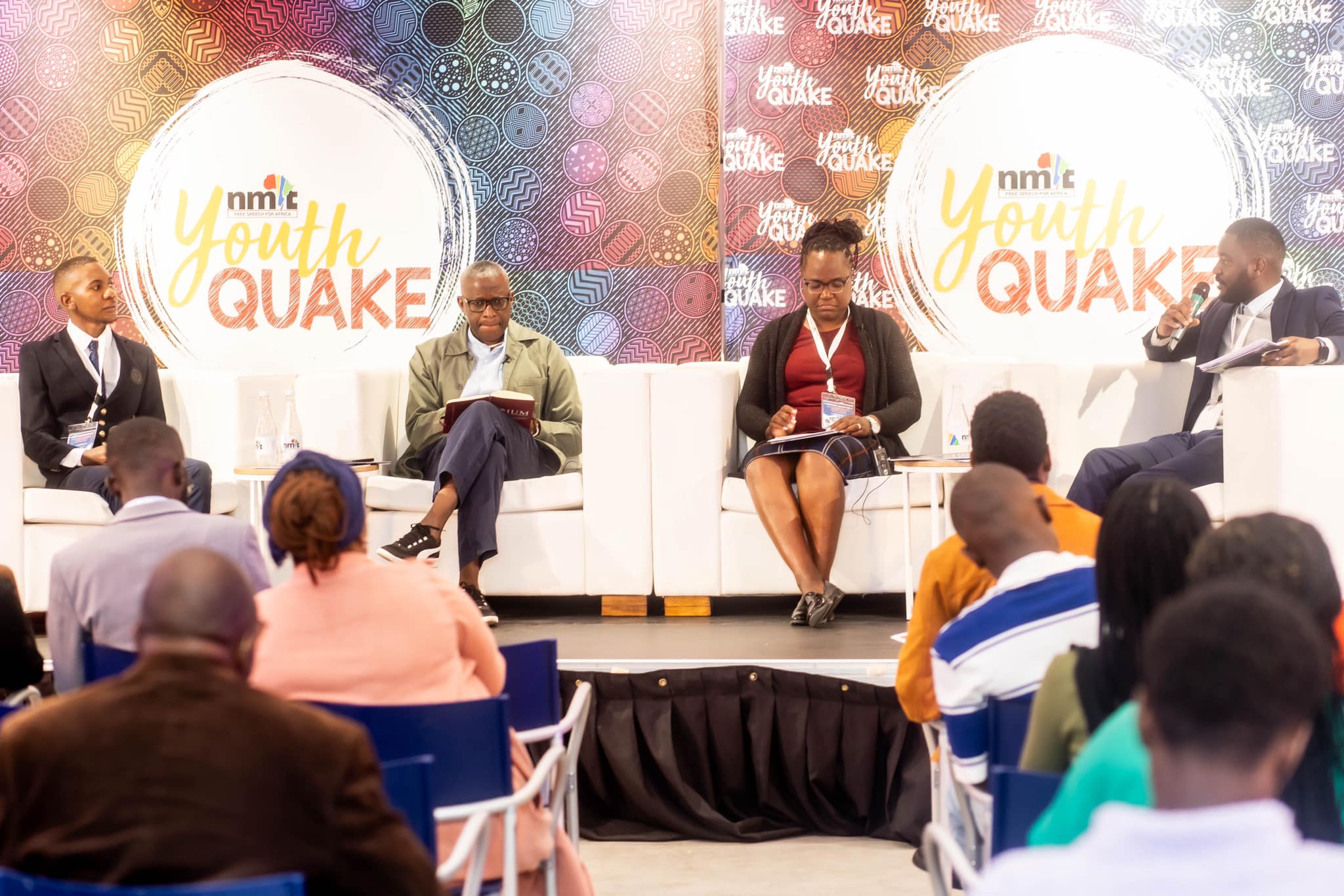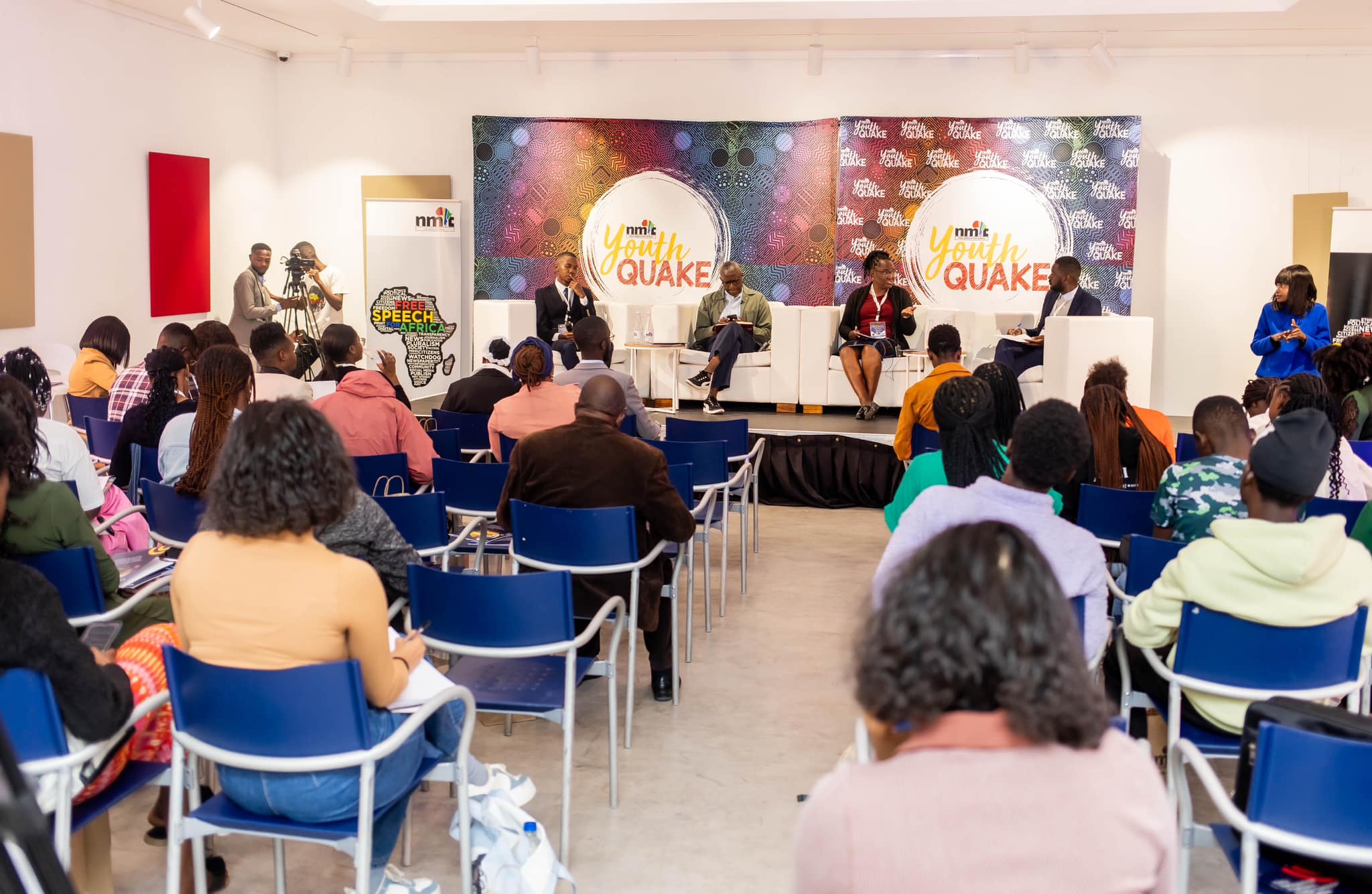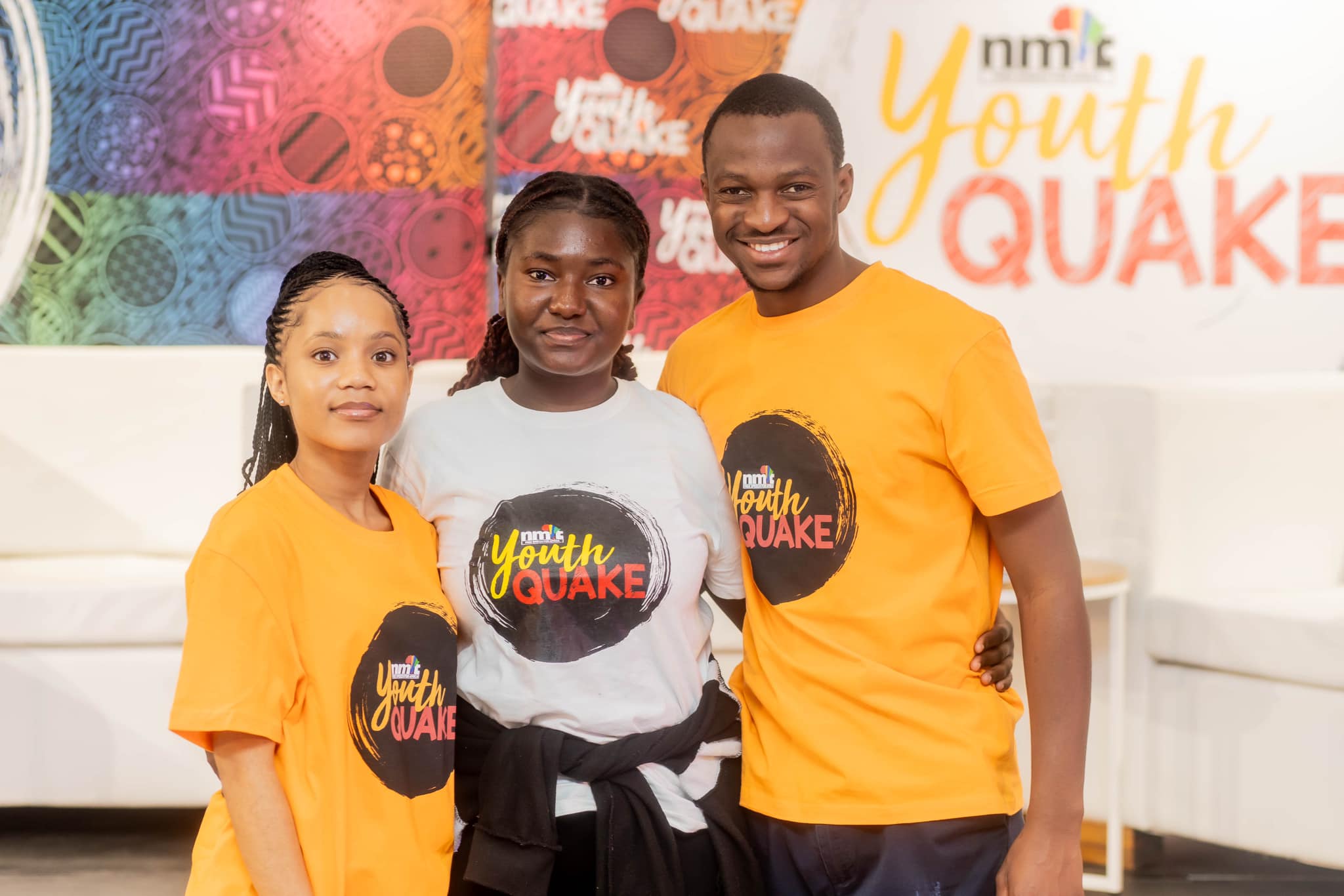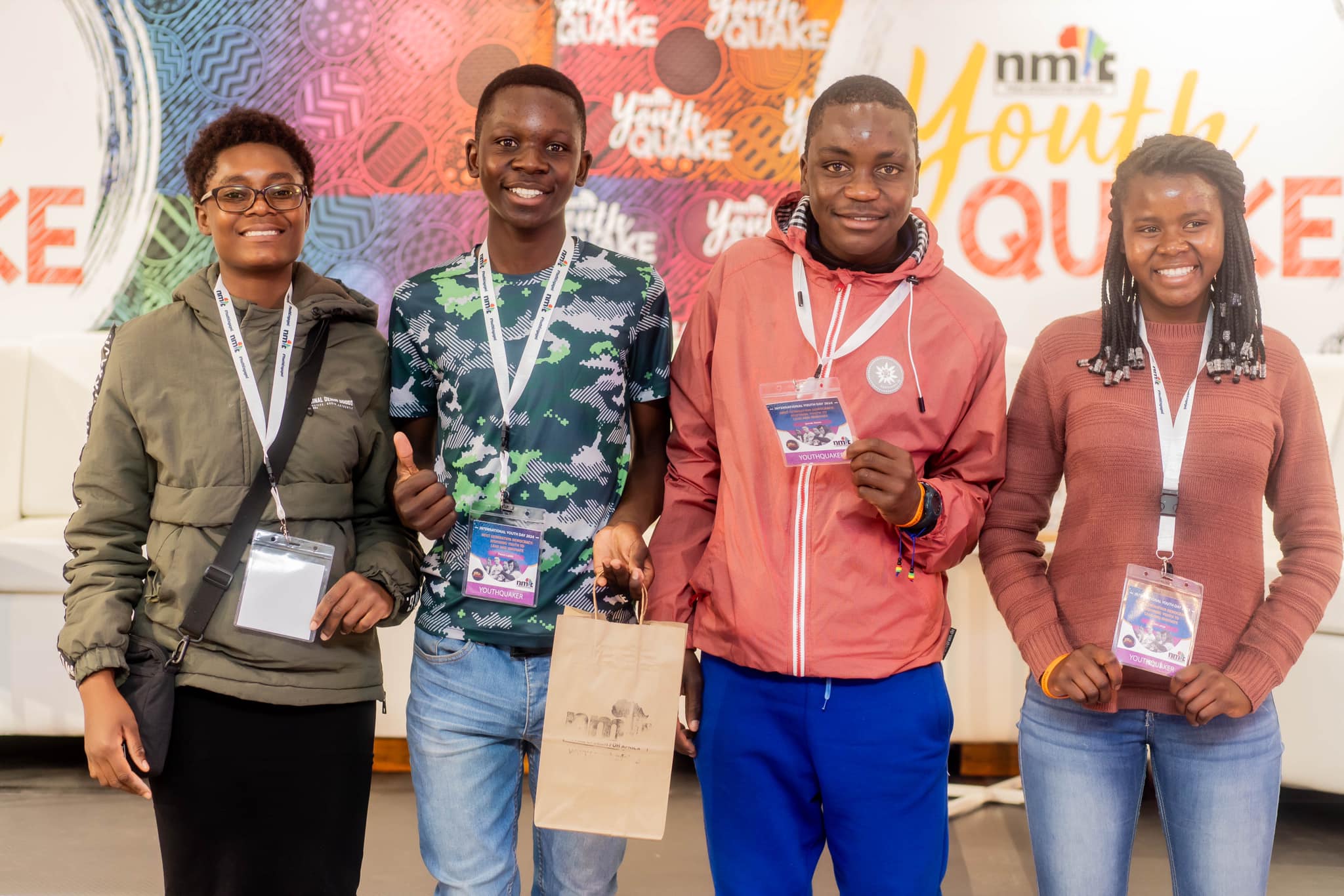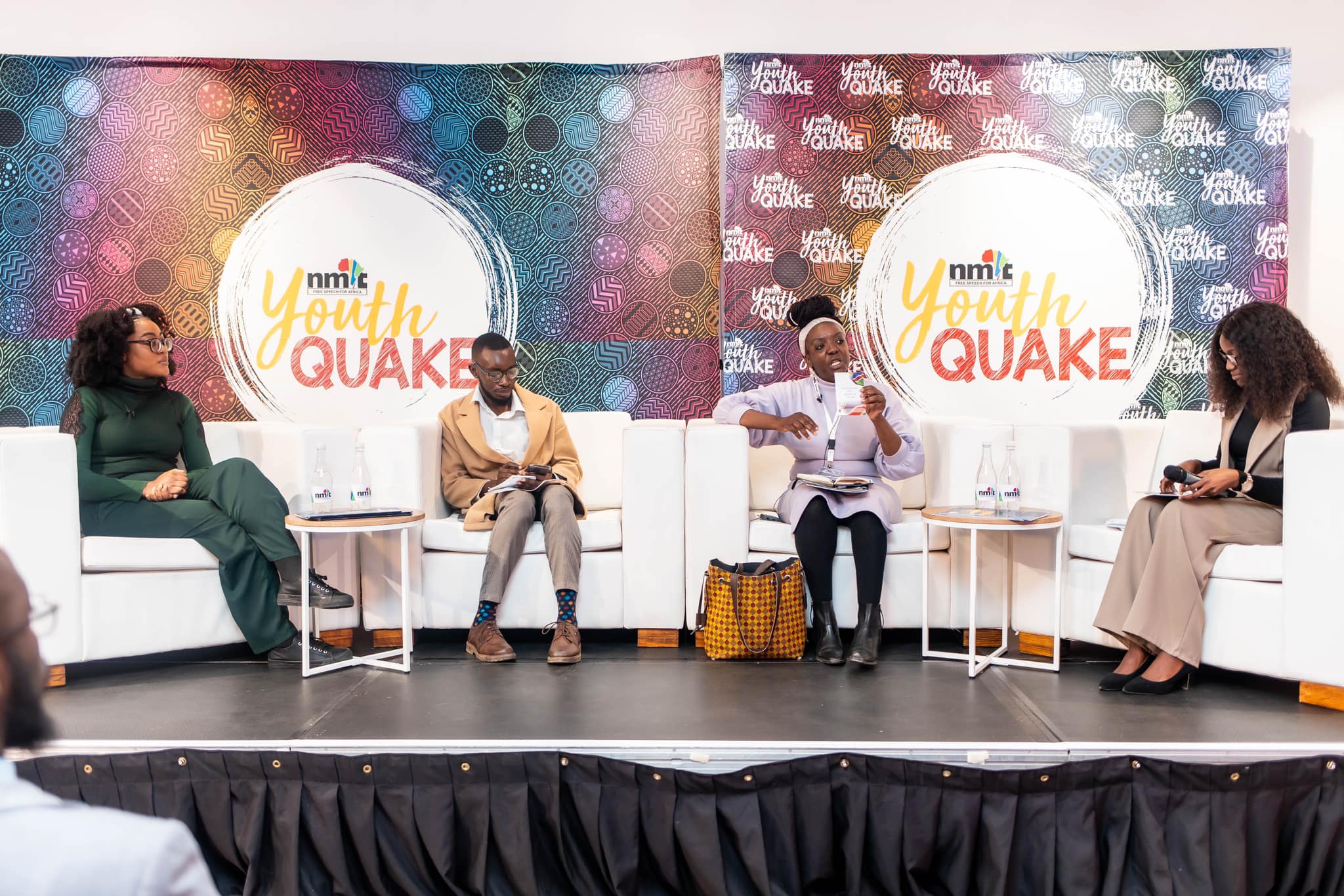Survey Warehouse’s Christiaan Keulder was invited to speak at the 2024 #YouthQuake Conference on International Youth Day 2024. His talk was titled ‘Namibia’s youth engagement in politics’, and you can read it in full below.
The #YouthQuakeNam24 conference, held on August 12, 2024, at the Goethe-Institut in Windhoek, brought together over 100 young Namibians, policymakers, and civil society representatives for a day dedicated to youth empowerment and democratic participation.
Organised by the Namibia Media Trust (NMT) to mark International Youth Day, the event centred on the theme ‘Next Generation Democracy: Inspiring Youth to Lead and Innovate.’
1. The Importance of Youth in Politics
Namibia’s youth population is a significant demographic, comprising approximately 55% of the voting-age population (VAP). This demographic’s political engagement is crucial for the country’s future. Youth are not only the leaders of tomorrow but also vital participants in current political processes. Their involvement is essential for ensuring sustainable development, as they have the potential to drive change and bring fresh perspectives to the nation’s political landscape.
2. Current State of Youth Engagement – Economically and Politically
2.1 Political Engagement:
The current state of political engagement among Namibian youth is characterised by a concerning trend of disengagement. Voter turnout is particularly low among the youngest cohort (18-25 years old), with only 39.3% voting in the 2019 elections and 59.2% not participating. As youth age, voter participation increases, with 65.5% of young adults (26-35 years old) voting, though 29.2% still did not engage in the electoral process.
Beyond voting, youth political engagement remains minimal across various activities. For example, 88.4% of youth aged 18-25 did not participate in collective actions, and 96.7% did not contact the media. Social media, a global platform for political expression, is underutilised by Namibian youth, with 93.7% never posting about politics or community affairs. Protest participation is also low, with 92.7% of youth aged 18-25 never attending a demonstration.
2.2 Economic Position:
Economically, Namibian youth face significant challenges that likely contribute to their political disengagement. High unemployment rates are a critical issue, with 50.2% of youth aged 18-25 actively seeking work but unable to find employment. This economic instability is further evidenced by the reliance on family and social networks for financial support, with 40.2% of youth aged 18-25 frequently requesting financial assistance from their families.
Moreover, the consideration of emigration is high among youth, with 48.7% of those aged 18-25 considering leaving the country to seek better opportunities elsewhere. This reflects a broader concern about Namibia’s lack of economic opportunities and the uncertain future prospects for young people.
3. Barriers to Youth Engagement
3.1 Economic Insecurity:
Economic challenges, particularly high unemployment, create a barrier to political engagement as youth focus on immediate survival rather than civic participation. This economic insecurity fosters disillusionment and may lead youth to view political processes as irrelevant or ineffective in addressing their needs.
3.2 Distrust in Political Leaders and Institutions:
There is a significant level of distrust among youth towards political leaders and institutions in Namibia. Many young people feel their voices are not heard by those in power, discouraging active participation. This scepticism extends to various forms of political engagement, including contacting MPs, local government councillors, and political party officials, where youth participation remains low.
3.3 Perceived Lack of Responsiveness:
The perception that political leaders do not listen to youth is widespread, particularly at the national level. This lack of perceived responsiveness contributes to feelings of alienation and marginalisation among young people, further reducing their motivation to engage in political activities.
3.4 Consideration of Emigration:
The high consideration of emigration among youth indicates a lack of confidence in their future prospects within Namibia. This mindset can diminish their motivation to invest in the country’s political system, leading to lower voter turnout and reduced participation in civic activities
4. Opportunities for Improving Youth Engagement
4.1 Addressing Economic Concerns:
Developing policies that specifically address youth unemployment and economic insecurity could make political processes more relevant to their immediate concerns. Implementing youth-focused employment programs, entrepreneurship support, and educational reforms to enhance job readiness could make political engagement more appealing as a means to influence positive change.
4.2 Building Trust in Political Institutions:
Increasing transparency, accountability, and responsiveness in government could help rebuild trust among youth. Regular, direct communication between youth and political leaders through town hall meetings, social media platforms, and youth advisory councils can demonstrate a genuine commitment to addressing youth issues and foster a stronger connection to the political system.
4.3 Enhancing Civic Education and Political Awareness:
Expanding civic education can empower youth by increasing their understanding of how political systems work and how they can influence these systems. Comprehensive civic education in schools and community-based programs focused on political literacy can equip youth with the knowledge and skills needed for effective political participation.
4.4 Leveraging Digital Platforms:
Social media and other digital platforms present significant opportunities for political engagement among youth, especially given their low levels of traditional political activity. Political parties and civil society organisations can create online campaigns, discussions, and forums encouraging youth to voice their opinions and participate in political discourse. Tailoring content to address issues that matter to youth can increase their engagement.
4.5 Youth-Inclusive Policy Making:
Involving youth directly in policy-making processes can make them feel more invested in the outcomes, increasing their likelihood of political engagement. Establishing youth representation in political bodies and ensuring that youth voices are included in consultations on policies that affect them can provide platforms for active participation.
Conclusion
Namibia’s youth are a crucial demographic for the country’s political future. However, significant economic and political barriers hinder their engagement. Addressing these barriers through targeted interventions, such as economic empowerment, trust-building, enhanced civic education, and the strategic use of digital platforms, can foster a more active and empowered youth population, ultimately strengthening Namibia’s democratic processes.
PHOTOS BY Youth Quake Namibia

